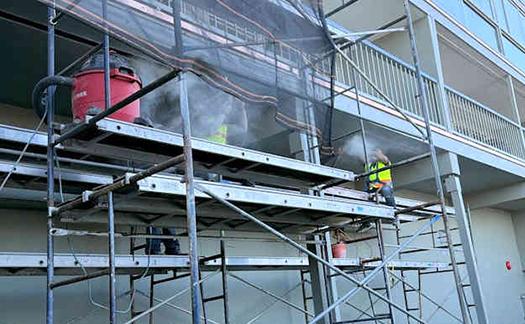SB326 Balcony Inspections: A Must for California Condo Safety

Balconies are often seen as relaxing outdoor spaces, but for California condominium communities, they can also pose serious structural risks—especially when built with wood or exposed to years of weather and wear. In response to several high-profile structural failures, California lawmakers passed Senate Bill 326 (SB326), which requires mandatory balcony inspections for all condominium buildings with three or more units.
If you're on the board of a homeowners association (HOA), or a property manager overseeing a condo development, SB326 balcony inspections are not just recommended—they're the law. And the compliance deadline of January 1, 2025, is fast approaching.
What Is SB326?
SB326, signed into law in 2019, requires all common interest developments (CIDs) in California—such as condominiums and townhome communities managed by HOAs—to inspect elevated exterior elements (EEEs) that are accessible to residents and supported entirely or partially by wood.
These elements include:
-
Balconies
-
Decks
-
Exterior stairways
-
Elevated walkways
-
Landings
What Does the Inspection Involve?
The SB326 balcony inspection must be conducted by a licensed structural engineer or architect. These inspections are designed to assess the structural integrity and safety of wooden components that may be subject to dry rot, water intrusion, or general deterioration.
Key components of the inspection include:
-
Visual evaluation of wood supports and connections
-
Assessment of flashing and waterproofing systems
-
Identifying signs of decay, damage, or excessive deflection
-
Reviewing load-bearing capacity
The inspector provides a written report to the HOA board, which must be retained for two full inspection cycles (approximately 18 years). These inspections must be repeated every 9 years.
Who Needs to Comply?
SB326 applies to:
-
All condo and townhome developments in California with three or more units
-
HOAs responsible for common area maintenance and building safety
-
Buildings that include EEEs six feet or more above ground level and built with wood or wood-based materials
Why Balcony Inspections Are Critical
Beyond legal compliance, SB326 balcony inspections offer real benefits:
-
Early detection of structural issues saves thousands in emergency repairs
-
Prevents accidents and injuries
-
Helps maintain property value
-
Minimizes HOA liability and legal exposure
-
Increases resident confidence in HOA leadership
Delaying inspections puts both people and finances at risk—especially if a balcony fails and the HOA is found negligent for ignoring inspection requirements.
How to Get Started
At ATC Balcony Repairs, we specialize in SB326 balcony inspections for condo communities across California. Our team of licensed professionals offers:
-
Detailed, code-compliant structural inspections
-
Fast, easy scheduling for HOAs and property managers
-
Transparent repair assessments (if needed)
-
Full documentation and report preparation
Whether you’re preparing for your first required inspection or planning for future compliance, our team is here to support you every step of the way.
- Vibnix Blog
- Politics
- News
- Liberia News
- Entertainment
- Technology
- Education
- Art
- Causes
- Crafts
- Dance
- Drinks
- Film
- Fitness
- Food
- Games
- Gardening
- Health
- Home
- Literature
- Music
- Networking
- Other
- Party
- Religion
- Shopping
- Sports
- Theater
- Wellness


